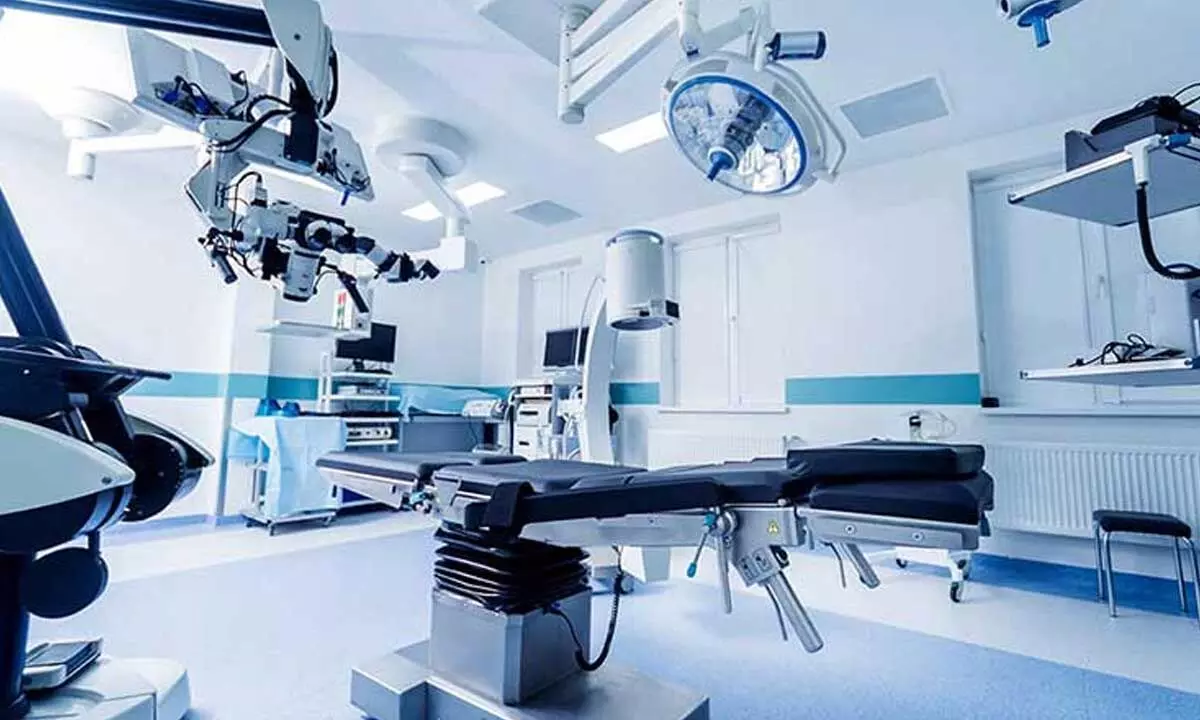Govt should pay heed to Parl Panel's recommendation on RLI scheme
To invigorate the culture of R&D in medical devices in institutions like IITs, NITs and other academic institutions, the govt should start RLI scheme in line with the PLI scheme
image for illustrative purpose

A Parliamentary panel has recently recommended to the central government to start a Research Linked Incentive (RLI) scheme on the lines of Production Linked Incentive (PLI) scheme in order to promote research and development (R&D) and innovation in the medical devices sector in the country. In its latest report on the 'Medical Devices: Regulation & Control', the Department-Related Parliamentary Standing Committee on the Union Ministry of Health and Family Welfare stated that to invigorate the culture of research and development in medical devices in institutions like IITs, NITs and other academic institutions, the government should start RLI scheme in line with the PLI scheme. Earlier, the Indian government had taken several initiatives to encourage domestic manufacturing of bulk drugs.
In order to make the country self-reliant in active pharmaceutical ingredients (APIs) and drug intermediates, the Department of Pharmaceuticals (DoP) has announced three schemes - the Production Linked Incentive (PLI) Scheme for promotion of domestic manufacturing of critical Key Starting Materials (KSMs)/Drug Intermediates and APIs in India with a financial outlay of Rs 6,490 crore; PLI Scheme for Pharmaceuticals with a financial outlay of Rs 15,000 crore; and the Scheme for Promotion of Bulk Drug Parks with a financial outlay of Rs 3,000 crore. The Indian government approved the PLI scheme for pharmaceutical industry for the financial period of 2020-21 to 2028-29. The major aim of the PLI scheme is to create an environment that is favourable for domestic API manufacturers. This scheme is expected to provide an employment opportunity directly as well as indirectly and provides a wide spectrum of medicines at an affordable price. The PLI scheme provides an incentive on the basis of the sale by selected manufacturers who cover all 53 pre-mentioned categories of API.
The Parliamentary panel's concern in this regard is quite understandable because despite boasting of several IT hubs like Bengaluru, Pune, Hyderabad and Delhi- NCR, the desired ecosystem for manufacturing of highly advanced medical devices is yet to be fully developed in the country. It is true that most of the high-end technology and innovative products originate from a well-developed ecosystem and innovation cycle. So, the government should facilitate academia-industry partnership for undertaking research projects on industry challenges and incentivize the successful outcomes. Besides, the government should prioritize and develop a robust funding mechanism to nurture an ecosystem for innovation for the medical devices industry. In this regard, the Parliamentary panel has rightly recommended to the DoP to have a dedicated corpus to fund start-ups and Small and Medium Enterprises (SMEs) undertaking research projects that aim for improving quality, efficiency of existing devices and other healthcare outcomes. In order to encourage indigenous manufacturing, the government should provide incentives or encourage preferential purchase for domestically manufactured products in government procurement. In this regard, the DoP should ensure that in all public procurement, the preference must be given to Indian manufactured medical devices having domestic content of at least 50 per cent. Given the size of government's (both Central and State) purchase, the Preferential Purchase Agreement would have a significant pull for a number of medical devices companies to manufacture medical devices in India.
But the government seems to be seized of the issue which is clear from the fact that the Department of Pharmaceuticals (DoP) had come out with a policy to catalyse research and development (R&D) and innovation in pharmaceutical and medical devices sectors in India. The policy aims to encourage R&D in Pharma-MedTech sector, and promoting innovation for India to become a leader in drug discovery and innovative medical devices through incubating an entrepreneurial environment.
The policy focuses on simplifying regulatory processes to enable rapid drug discovery and development and innovation in medical devices; exploring mechanisms to incentivise private sector investment in research and evaluate various funding mechanisms including budgetary support, venture capital, CSR funding etc., and fiscal incentives to support innovation; and strengthening the R&D ecosystem through increased collaboration between industry and academia in order to develop mechanisms to dovetail research as per requirement of the industry. On the regulatory front, which is currently geared towards assuring safety and efficacy and not differentiate in favour of innovation, the policy contemplates to create a regulatory bias in favour of innovation and original research by mandating all regulators (as there are several regulators and agencies involved in the approval processes) to work together to reduce process overlapping and establish timelines for requisite approvals.
The government would undertake a review of the multiple legislations impacting R&D in pharma and medical devices sectors with a view to remove inconsistencies and redundancies. The Parliamentary panel's concern is genuine and timely. Now, the government should pay heed to it.
(The author is a freelance journalist with varied experience in different fields)

